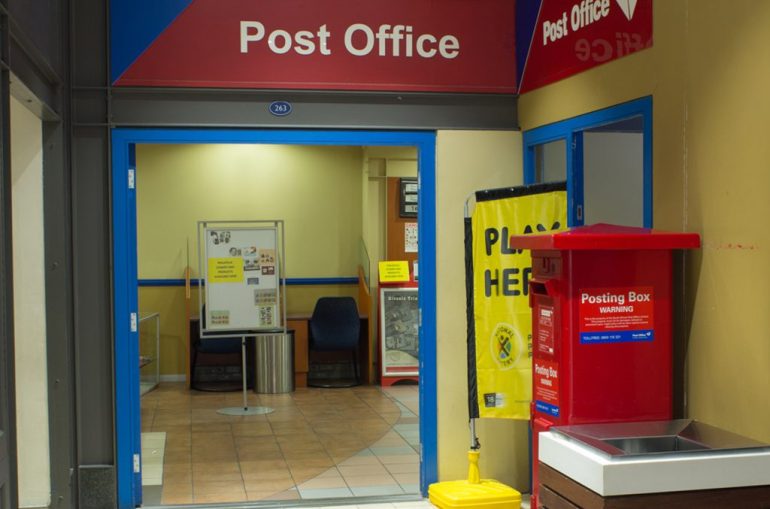Will businesses maintain COVID-19 compliance?
By: Natasha Archary
Compliance issues pose a huge challenge to the Department of Employment and Labour. Last month, inspections carried out saw just 60% of organizations, or two of five, meeting compliance regulations.
Which does not bode well for the country, with more companies now operating under the less strict rules under Level 3. What’s more is that Government and State Owned Enterprises (SOEs) were rated at 50% compliant.

Business as usual
What many fail to understand is that the COVID-19 did not miraculously disappear when the President declared the country moves to Level 3 lockdown in June. If anything, given the rate at which the virus is spreading in the country, it is rather concerning, especially with organizations, stores, places of worship where people are queuing.
The Occupational Health and Safety Act (OHSA) is clear in that organizations that are operating as per “normal” from June (as normal as can be expected considering the circumstances) are to abide by the strict obligations to protect their employees and customers.
There are strict directives by the Department of Employment and Labour that employers need to provide to maintain a reasonably safe working environment that limits risks to its employees. And steps that have to be taken to eliminate the potential hazards around contracting or possible spreading of the COVID-19 virus.
Social distancing measures
It will be difficult for employers to keep to the advised social distancing parameters for operating but this is not something to be taken lightly. Designated markings of the advised 1.5 meters between employees must be observed.
Depending on the nature of the business, the distance between staff may need to be increased. In open-plan settings, it would be advised that cubicles or transparent barriers are put in place to form a solid barrier between employees.
Daily screenings
Apart from observing social distancing, the directives state that the employer has to take it upon themselves to screen all their employees when they report to work. Temperature checks are essential as are all observable symptoms linked to COVID-19. These include a temperature higher than 37, a cough, shortness of breath, sore throat, red eyes, difficulty breathing.
Employers will also need to ask the employees to report, as required by law, if they have any of the following symptoms: body aches, vomiting, nausea, fatigue, weakness, tiredness, loss of smell, loss of taste.
Employees should also disclose if they have any suspicions that they may have come in contact with someone positive with the virus.

Employers obligations
According to the directives, every employer is responsible for the costs of hand sanitizers at the entrance of the workplace and accessible in the work environment should an employee need it. This is especially so for employees who are in direct contact with the public.
Sanitizers need to, by law contain at least 70% alcohol, as stipulated with the Department of Health’s recommendations. Access of sanitizers need to be available for the employee’s workstation, office, boardroom or communal areas.
The employer is also responsible to provide each of its employees, free of charge, with two cloth masks, which must comply with the guidelines issued by the Department of Trade, Industry, and Competition.
The standard is a 3 layered fabric mask that is breathable. The employer needs to also ensure the workplace is sufficiently ventilated.
Please ensure you have read the full set of directives so you understand the repercussions which may result in penalties or criminal prosecution for lack of adherence.
Written by: Natasha
Similar posts
MORE ARTICLES

‘We said yes to forever’ – Miss SA Mia le Roux announces engagement

SA Powerball Results for tonight: Tuesday, 08 July 2025

‘I’m not happy with my husband helping his ex find a job’ – The Blind Spot

‘The Queenstown Kings’ star Tessa Twala launches podcast for professionals in the entertainment space

Why is electricity so expensive? Energy expert breaks it down
QUICK LINKS
UpComing Shows

The Best T in the City
With T Bose
He has held it down in the world of mid-morning radio with the best music, riveting topics, brilliant mixes and interesting guests. Every weekday, The Best T proves why he is the BEST by connecting to you like only your bro or favourite uncle could. He lets his listeners dictate the songs they want to hear in the ever-popular Top 10 at 10, and his Three Teaspoons never run out. Catch The Best T in the City Mondays to Fridays from 09h00 to 12h00.
close
Feel Good
With Andy Maqondwana
Feel good about feeling good! That's exactly what The Feel-Good show is about. An escape from the negativity that surrounds us, indulging you in good feels. Pass it on to one and all. Spread the good feeling around Gauteng with Andy Maqondwana.
close
Kaya Biz
With Gugulethu Mfuphi
The world of business is simplified for you by Kaya Biz with Gugulethu Mfuphi. This fast-paced award-winning business show talks to the corporate giants as well as up and coming entrepreneurs about their wins and challenges. Gugulethu invites guests to offer their analyses of markets and economies, and also delves into issues of personal financial wellness. Kaya Biz airs Mondays to Thursdays 18h00 to 19h00.
close
Point of View
With Phemelo Motene
Point of View with Phemelo Motene delves into the day’s current affairs, touches on real issues that affect people’s daily lives and shares expert advice on questions posed by the audience. Mondays to Thursdays 20:00 to 22:00.
close
959 Music Weekdays
Kaya 959 Hits
Real. Familiar. Memorable. Kaya 959 brings you the music you know and love from our playlist. Uninterrupted. Thursdays 20h00 to 21h00
closeConnect with Kaya 959
DownLoad Our Mobile App
© 2025 Kaya 959 | On The Street On The Air










